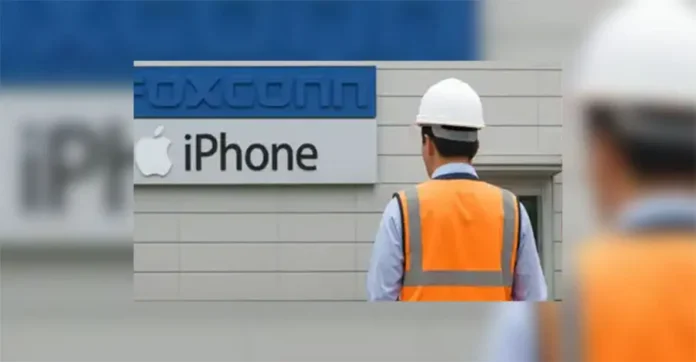
The Indian government has addressed concerns over the recent departure of Chinese engineers from Foxconn’s iPhone assembly plant in Tamil Nadu, stating that while it is “closely monitoring” the situation, it is confident Apple has the capacity to stay on track with its production goals.
The development had sparked fears that the sudden exit of hundreds of Chinese professionals might delay the mass production of the iPhone 17, scheduled to begin in August ahead of its global launch in September. “The government is monitoring the situation. Apple has alternatives and they should be able to look at ways to handle this. The issue is primarily between Apple and Foxconn,” a senior government official told PTI on condition of anonymity.
The Chinese engineers played a crucial role in overseeing advanced assembly lines, designing the factory layout, and training Indian workers on precision equipment essential for iPhone manufacturing. Foxconn, Apple’s key manufacturing partner, runs its largest Indian plant in Sriperumbudur, which produces iPhones for both local and export markets.
Reports suggest the withdrawal may be linked to China’s increasing focus on domesticising high-tech production and preventing the transfer of sensitive technology overseas.
Despite the disruption, Apple is scaling up its India operations rapidly. iPhone production in India is projected to grow to 60 million units by FY26, a significant jump from the 35–40 million units produced last year. Both Foxconn and Tata Electronics are expanding manufacturing capacity with new facilities underway. In FY25 alone, Apple assembled iPhones worth $22 billion in India — a 60% year-on-year increase.
Apple CEO Tim Cook recently confirmed that all iPhones sold in the U.S. during Q2 2025 were manufactured in India, highlighting the country’s strategic role. “Government facilitated visas for Chinese workers. Companies will have to make arrangements to ensure there is no disruption in the production,” the official added.
Foxconn and Tata are major beneficiaries of India’s Production Linked Incentive (PLI) scheme, which has helped ease past hurdles around component sourcing from China and boosted local manufacturing resilience.
Trial production for iPhone 17 is set to start in July, with India manufacturing the device simultaneously with China for the first time — a landmark for Apple’s “China+1” strategy. Apple is also set to expand its retail footprint in India with new Apple Stores expected by late 2025.





